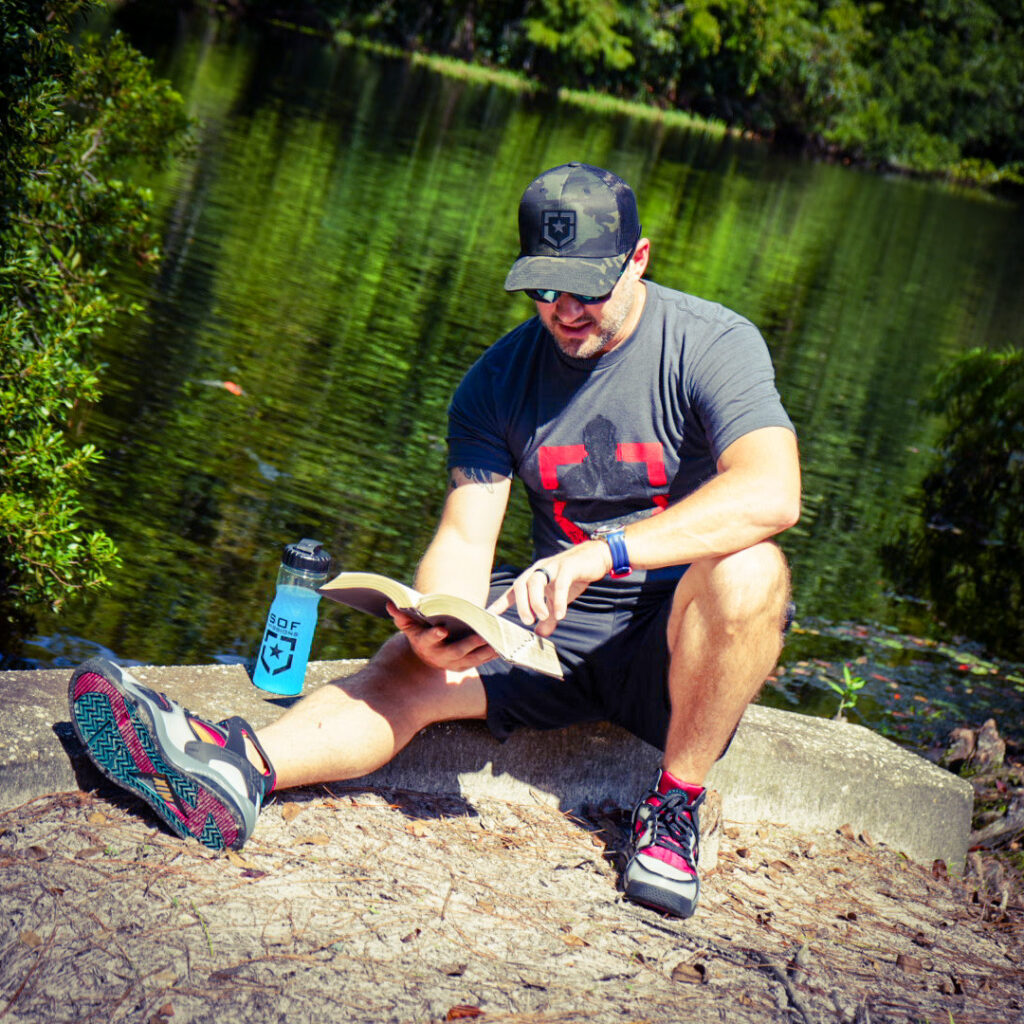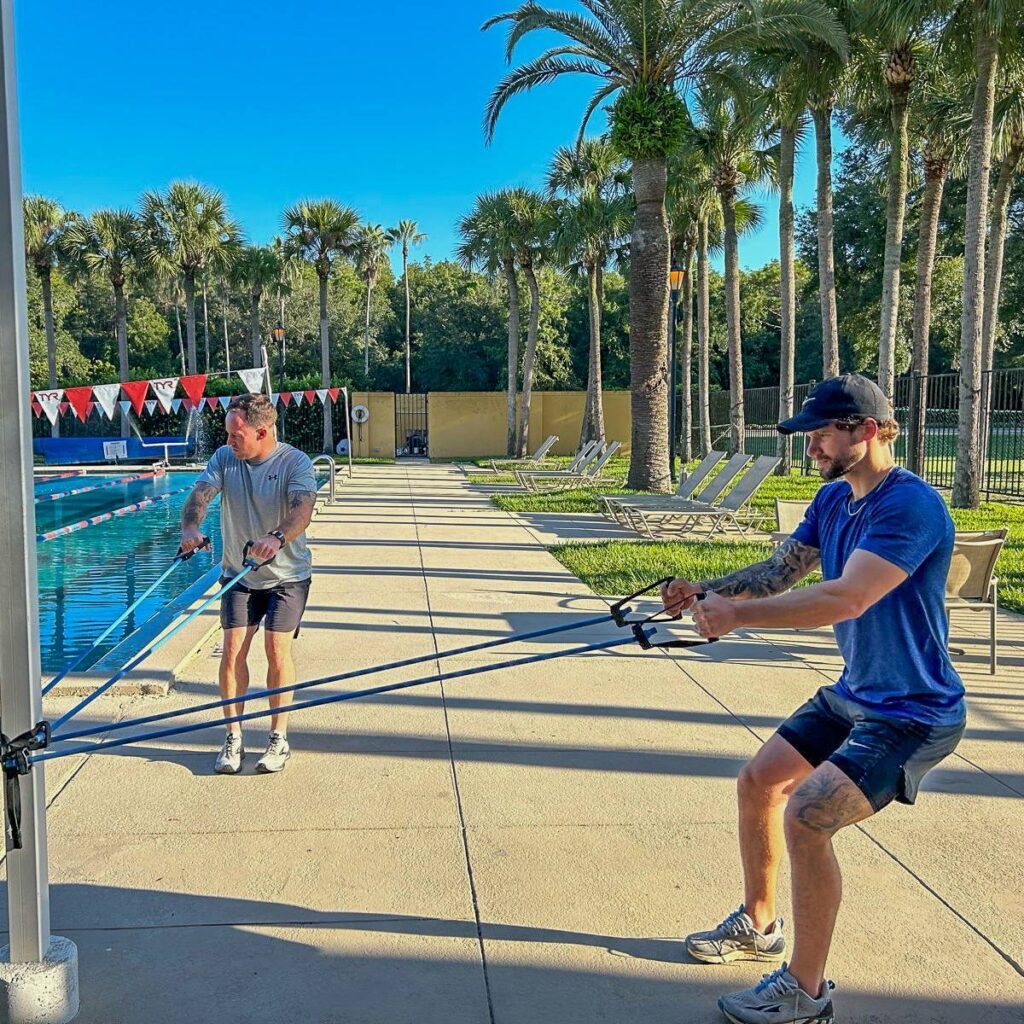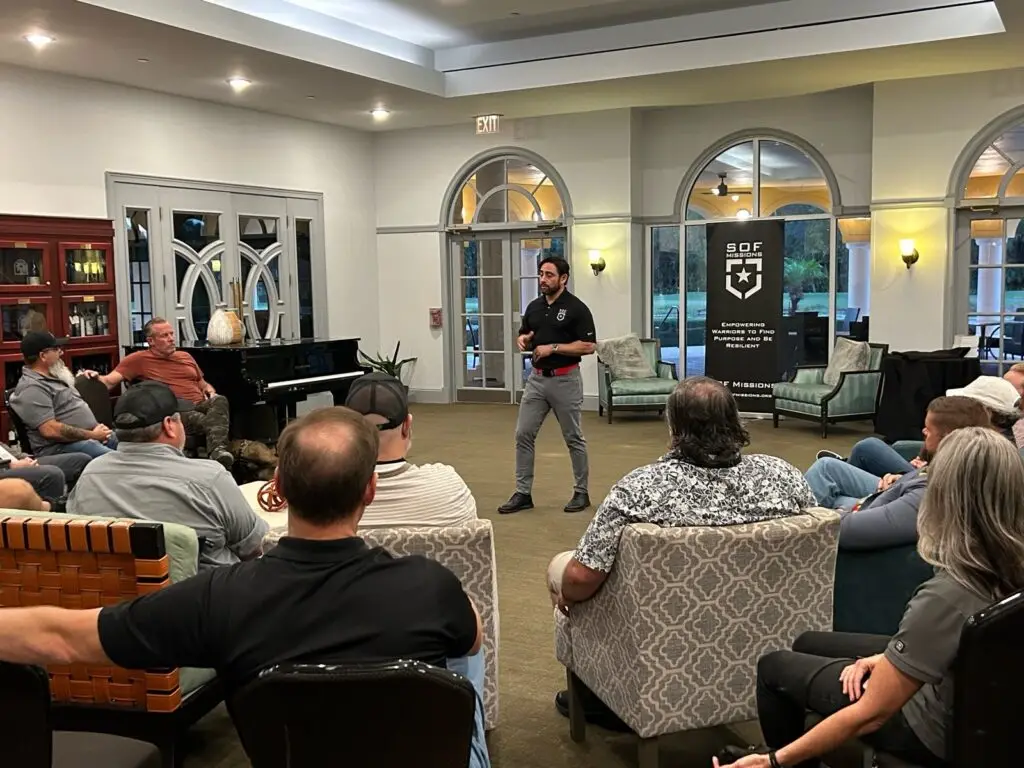Damon Friedman speaks to graduates of an SOF Missions Be Resilient Clinic. Photo courtesy of Damon Friedman
DATELINE (BP) – Like all others who have served, Veterans Day holds a special place for Damon Friedman.
Multiple combat deployments in Iraq and Afghanistan. Awarded three Bronze Stars (one for Valor) and the Air Force Combat Action Medal. Recipient of the Spirit of Hope Award by the secretary of defense. Stateside, he has become a published author and inspirational speaker.
He is also someone who knows what it’s like to sit alone, nothing with you but the darkest of thoughts and a loaded gun.
It was 2010. Friedman had returned from a deployment in the heart of Afghanistan. He suffered a mild traumatic brain injury there.
“I was in a lot of stress and pain,” he told Baptist Press.
“I’m intimately familiar with suicidal ideations. Imagine you’re waking up from a horrific nightmare, and it’s not the first one. It’s been years. Your head is hurting, you have a headache, blurred vision, the room is spinning. You try to get up from bed but your neck, back and ankle hurt.
“You don’t have a good relationship with your spouse or your kids. Every morning you wake up like this and you’re in so much pain that you just want to make it all go away.”
Friedman got help and got better. God was the primary factor in his healing, which led to his addressing issues such as cognitive care. It also led to establishing SOF (Shield of Faith) Missions, a Tampa-based nonprofit that works to raise awareness of veteran suicide while providing a customized, holistic treatment plan for clients to heal individually, but also with their families.
The program centers on four health components – psychological, social, physical and spiritual.
“Science reveals that trauma is processed in multiple domains,” Friedman said. “It’s not just psychological, where PTSD resides. It’s also being processed cognitively. It’s going through your brain physically and your body spiritually. It’s going through your soul.”

his Bible. SOF Missions/Facebook
At his worst point Friedman was isolated and self-medicating with alcohol.
“But then God sent some good, amazing people to me, Dr. David LeMay in particular,” he said.
LeMay is an advisory board member with SOF Missions and has served on staff with teams in the NFL, NBA and NHL in addition to racking up accolades from addressing brain trauma. He is also the tip of the iceberg for the help at SOF Missions.
Healing power
Friedman enlisted in the Marine Corps in 2000. A year later he was a newly pinned second lieutenant taking part in a training exercise when he and others were called over to a TV. A plane had crashed into the north building of the World Trade Center. They saw the second plane strike and knew it was no accident.
Five-and-a-half years with the Marines preceded 15 with the Air Force special forces.
“I was coming back from a special operations deployment and was humbled that someone with the stature like Dr. LeMay would take time to help me,” he said. “I was never charged a penny.”
LeMay, a Christian, also addressed other wounds.
“As he was healing me physically, he was also talking to me about the healing power of God,” Friedman said.
Friedman wanted to do everything possible to make the same service available to veterans. Through various grants and donors, SOF Missions provides clients the benefit of up to 30 practitioners like psychologists, social workers, chiropractors, massage therapists and nutritionists.
Clinics last one week and house 10 veterans or active-duty personnel at a time. A “Mayo Clinic model,” said Friedman, puts them in touch with physicians throughout the day in a resort setting to provide an atmosphere of relaxation and recovery.

After the week, clients receive a follow-up care plan for the following year. Checkups with SOF Missions take place at 30-, 60- and 90-day intervals. At any one time, SOF staff are monitoring or working with 80-100 clients.
“It costs us anywhere between $15,000-$20,000 per warrior, but they’re getting $20,000-$25,000 worth of care,” Friedman said. “We’ve been blessed by nonprofit rates and companies, organization and establishments that help us streamline the cost. That gives high-quality medical care to many veterans struggling to make ends meet.”
A new mission
Those who haven’t gone through it can’t appreciate the transition expected of those returning from deployment. Friedman knows what it’s like to drive into a village where women are mourning in agony, unable to think of anything more to do than fling dirt into the air because their children were killed and burned.
“You don’t know what hate is until you see that stuff,” he said. “I didn’t just hate what the enemy did. I hated the enemy.”
Scenes like that don’t leave your mind. One minute you’re there. The next you’re standing in a grocery store aisle, panning your gaze across 3 million brands of cereal and trying to remember which one your wife told you the kids had to have.
But there is a sense of order in the military that makes civilian life feel alien. That would be the case any time. Friedman’s 2020 departure from active duty came in the throes of the COVID-19 shutdown.
“I thought I was losing my mind,” he said. “It was such a highly polarizing environment, with cultural upheaval and mask mandates.”
Given his background and current mission, it’s no surprise at his current outlook.
“When I was in the middle of my darkness, Jesus showed up. He was my extractor,” Friedman said. “The enemy, Satan, was ambushing me. I’m in my living room on the couch seriously considering the most catastrophic decision of my life.
“There was a war for my soul. It was hemorrhaging, like when an artery is cut, and Jesus was there. That’s why the spiritual component of what we do is so important.”
That doesn’t mean Friedman doesn’t still wrestle with pain. He pointed to Paul as an example of relying on God’s grace in tough spots such as facing a mob or being stoned and left for dead.
“No matter how dark it is or how much pain you’ve endured, there is still hope,” he said to those struggling with thoughts of suicide. “I know because I was there. We partner with others because we can’t do this alone, but we can help you out. The first step is recognizing you need help.”
His emergence from the darkest of times points to the one who rescued him, but also to his calling.
“I’m a missionary for those in this struggle,” Friedman said. “My enemy is suicide, and it is the primary weapon by Satan against people of all walks of life.
“God has given us life and calls us to do something incredible in the world. Like Scripture says, start with small things and more will be given. I realized I can be that person who overcomes and be part of the solution.”
This article by Scott Barkley, chief national correspondent for Baptist Press, was posted at baptistpress.com.

